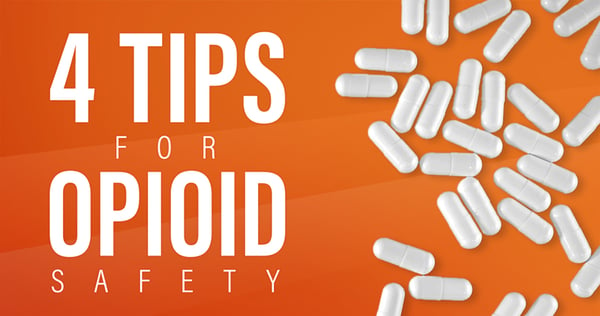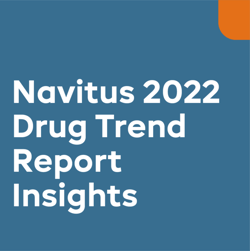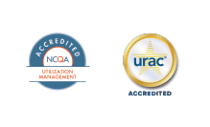It’s time to put an end to prescription opioid misuse and abuse. Here are four tips to help ensure safe and effective use by your members.
According to the CDC, over 70% of drug overdose deaths involve an opioid, making opioids the main driver of drug overdose deaths in the United States.1 To add to that, the stress from the pandemic exacerbated the growing nationwide opioid epidemic, resulting in an increase in opioid misuse, overdoses and deaths. Recent data from the CDC reported more than 93,000 Americans died from a drug overdose in 2020, an increase of 29% compared to 2019.2
In recognition of International Overdose Awareness Day on August 31st, we encourage you to join us in the worldwide movement to raise awareness about one of the worst public health crises, encourage open discussion to end the stigma and take action to prevent and combat drug overdoses.
Putting an End to Prescription Opioid Misuse and Abuse
While opioids can be helpful for people who have chronic pain or may be recovering from a recent surgery, they have the potential to be addictive and can be harmful if not taken correctly. In fact, an estimated 1.7 million people in the United States struggle with prescription opioid abuse disorder.3
What can members do to prevent opioid misuse, abuse or overdose? Share these tips to ensure safe and effective use of opioids.
| Tip #1: Ask questions. If you are taking a prescription opioid, it’s important to ask your doctor questions to ensure safe and effective use. For example: Is this the lowest effective dose for me? How long should I take this medication? What are the side effects? |
|
| Tip #2: Handle opioids safely.
Be sure to take your medication as directed, and don’t mix with alcohol or other medications without talking to your doctor first. You should always store prescription medications in a secure area, away from family, friends, children and pets. Unlike certain medications, such as antibiotics, you may stop taking prescription opioids if you are feeling better and no longer experiencing pain. Drug take-back events and controlled substance disposal sites are the best means to dispose of unused medications properly. Visit https://www.deadiversion.usdoj.gov/drug_disposal/takeback/ to find a drug take-back event or authorized disposal location near you. |
|
| Tip #3: Seek out alternative therapies. Both medicinal and non-medicinal ways exist to relieve pain, referred to as alternative therapies. Talk to your doctor about whether non-opioid pain relievers might be right for you. Depending on your injury or pain level, ask if acupuncture, physical therapy, massage therapy or exercise could help. |
|
| Tip #4: Recognize the warning signs of dependence or addiction.
Pay attention to changes in behavior and ask for help if something seems wrong. You should speak with your doctor right away if you are concerned about becoming dependent or addicted to prescription opioids. If you’re concerned about a friend or family member, and the situation is not an emergency, contact a local substance abuse facility to learn more about what you can do. If you’re concerned that someone may be overdosing, call 911 right away. If you or someone you know may be at risk for overdose, talk to a doctor about obtaining a prescription for naloxone to keep on hand in case of emergency. Naloxone is a medication that can be used to reverse the effects of a suspected opioid overdose and can possibly save a life. |

What can plan sponsors do to prevent opioid misuse, abuse or overdose? At Navitus, we are doing our part to help prevent prescription opioid misuse and abuse with our suite of opioid safety solutions, including the recent launch of Predictive Analytics for the Misuse of Opioids (PAMO). Every day we work with plan sponsors to ensure that members take medications that are safe and appropriate, adhere to their medications and can easily find information and resources to stay healthy. For more information and tools to help prevent opioid abuse and misuse among your members, email us at sales@navitus.com or contact your account representative.
To learn more tips for safe opioid use, visit https://www.navitus.com/members/health-information/educational-resources.
For additional addiction support and resources, contact National Helpline at 1.800.662.HELP (4357), Narcotics Anonymous at 1.800.407.7195 or www.narcotics.com, and www.FindTreatment.gov.
- Drug Overdose Deaths. Centers for Disease Control and Prevention (CDC). https://www.cdc.gov/drugoverdose/deaths/index.html. Published March 3, 2021. Accessed August 13, 2021.
- Ahmad FB, Rossen LM, Sutton P. Provisional Drug Overdose Death Counts. National Center for Health Statistics. https://www.cdc.gov/nchs/nvss/vsrr/drug-overdose-data.htm. Published August 11, 2021. Accessed August 13, 2021.
- Opioid Overdose Crisis. National Institute on Drug Abuse. https://www.drugabuse.gov/drug-topics/opioids/opioid-overdose-crisis. Published March 11, 2021. Accessed August 13, 2021.





